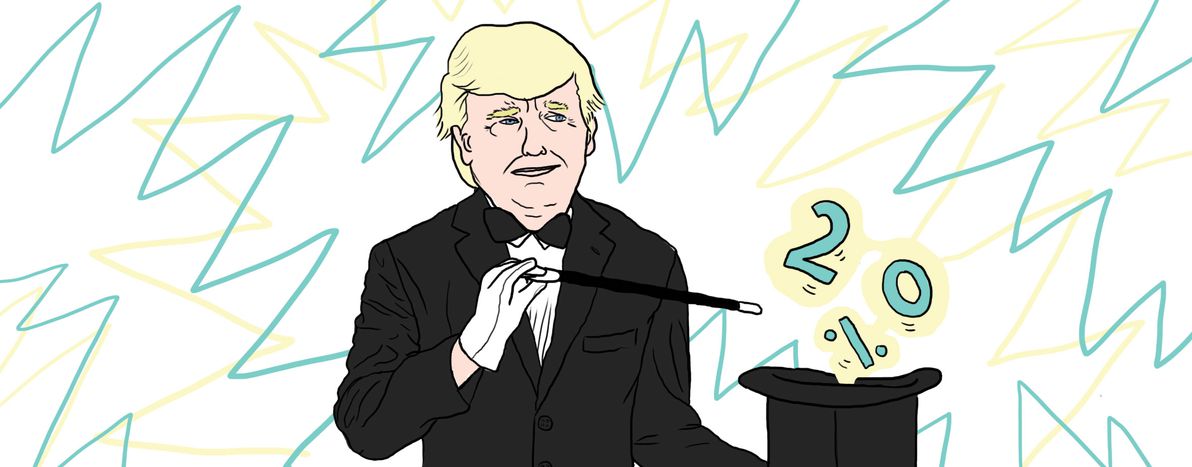
Behind the numbers: The "20% world" in 2016
Published on
Translation by:
CafébabelWhilst an absolute majority of votes constitutes the "golden rule" of democracy, another percentage looks set to make a massive impact on 2016, thanks to the emergence of the so-called "20% World". Improbable events and minority politicians – that "only" have a one-in-five chance of succeeding – could be set to experience a new wave of good fortune.
In a democracy, the fateful threshold of 50% – and whoever surpasses this majority –constitutes the basis for attributing power. But in 2016 another all-important percentage seems to have emerged: a so-called “psychological” threshold.
In the rogue's gallery of political personalities and events that could leave a mark on 2016, we find a real hotch-potch of contenders, ranging from current mainstream political thought to real outsiders. In discussing the potential for minority ideas to overthrow the political heavyweights, John Micklethwait – editor-in-chief of Bloomberg News – puts forward a concept he calls the "20% World".
Whatever your view, there exist a number of political positions which could be considered extreme (if not dangerous for the stability of society) that have the potential to rock the boat on both sides of the Atlantic.
From Trump to Corbyn, from Le Pen to Brexit
Let’s start with Donald Trump, controversial candidate for the Republican presidential nomination in the United States. Among his most recent (and most sensationalist) declarations are the call to ban the Internet, and to prevent all Muslims from entering the US.
Despite of this, bookies consistently give him around a 17% probability of being awarded the nomination – around the same chance as Jeremy Corbyn is being given of becoming UK Prime Minister, even as a "socialist" who seems to be scaring his own Labour party just as much as his Conservatives rivals.
What about Marine Le Pen? Her chance of success at the 2017 French presidential elections is more like 25%. The current risk of a Brexit (an exit of the UK from the EU. ed.), leaves no certain (or reassuring) predictions surrounding the referendum set to take place this June. Some analysts think things are even less clear-cut than the recent referendum on Scottish independence.
It’s true that we are straying into the realm of probability – we are after all only talking about a one-in-five chance. However, Micklethwait reminds us that events considered highly improbable by pollsters and bookies are by no means an impossibility.
Political movements once considered marginal have already had an impact all over Europe: Tsipras and Syriza hold power in Greece. Nationalist and populist parties control countries such as Orbán’s Hungary, Poland and Finland. In a climate where the electorate is increasingly disappointed and critical of the "establishment", it's not out of the question that the population will consider more extreme solutions.
---
This article is part of our Behind the Numbers series, illustrating newsworthy stats with artistic design and a brief analysis.
Translated from Numeri che parlano da soli: quel "20%" che rischia di diventare la maggioranza



